France Urges Stronger Response To Iran's Missile Threat
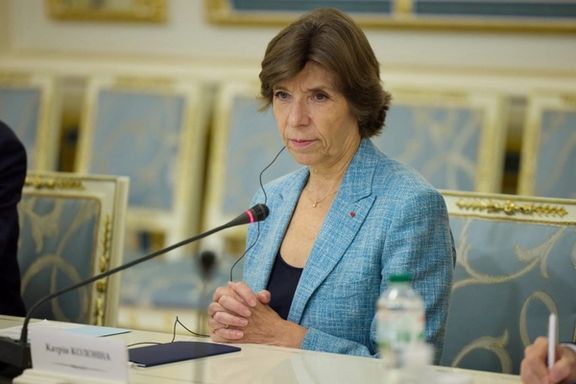
There must be a stronger "international response" to the threat posed by Iran's ballistic missiles program, France has said.

There must be a stronger "international response" to the threat posed by Iran's ballistic missiles program, France has said.
French Foreign Minister Catherine Colonna conveyed her country’s position to her US counterpart Anthony Blinken, France's Foreign Ministry said on Friday.
The French Foreign Ministry said Colonna and Blinken had spoken by phone on Thursday, during which they discussed an array of topics, including Ukraine and Iran.
"The minister mentioned Iran's destabilizing activities and the increasing threat posed by the increase of its ballistic missiles arsenal, the proliferation of missiles including towards non-state actors (...) and the need to strengthen the international response to this threat," said the ministry, regarding Colonna's talks with Blinken.
They also discussed the need for Iran to fully co-operate with the International Atomic Energy Agency (IAEA), which said last week Tehran was inconsistent in meeting its nuclear obligations.
Nuclear negotiation between the United States, United Kingdom, France and Germany, and Iran reached a stalemate in September and since then tensions have increased as the West has imposed new sanctions on Tehran. There have been reports that the US and France are keen to demand a new agreement with Iran surpassing nuclear issues.
Iran's supply of kamikaze drones to Russia is another key issue for Europe, as there are reports that Moscow has requested ballistic missiles from Tehran to augment its dwindling arsenal.
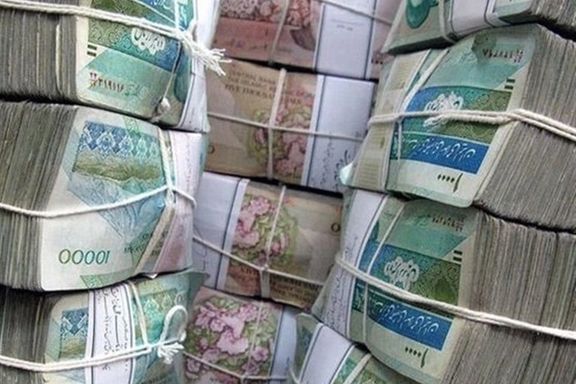
A top official of Iran’s tax administration says that tax collection this year has increased by 55 percent, as the government resorts to domestic revenue sources.
United States sanctions on oil exports, Iran’s main source of income, continue with Tehran shipping half as much oil as in the pre-sanction era and selling the oil at a steep discount.
Mojtaba Amiri a top official of tax administration was quoted by the official government news website IRNA as saying that in the first 10 months of current Iranian year, 3,880 trillion rials of all types of taxes have been collected. This would be in the range of $12-13 billion depending on how the exchange rate is calculated.
The government decided last year to boost tax revenues to offset its large chronic budget deficit in the absence of oil sufficient oil income. Iran needs around $50-60 billion in oil exports to balance its budget. Official figures indicate $37 billion of exports, while the reported steep discounts Iran offers to entice buyers cast doubt on the figure.
Amiri said that about two-thirds of tax revenues came from direct taxes, meaning income and business taxes and one third form “indirect taxes”, which could mean import, export and sales taxes.
He also claimed that tax collection targets were met by 113 percent, but earlier reports indicted a 60-percent tax collection success.
Amid a serious economic crisis, more taxes mean an additional burden on citizens and businesses, while major economic enterprises controlled by regime insiders are legally exempt from taxes.
Next years budget starting March 21 relies even more heavily on tax income.
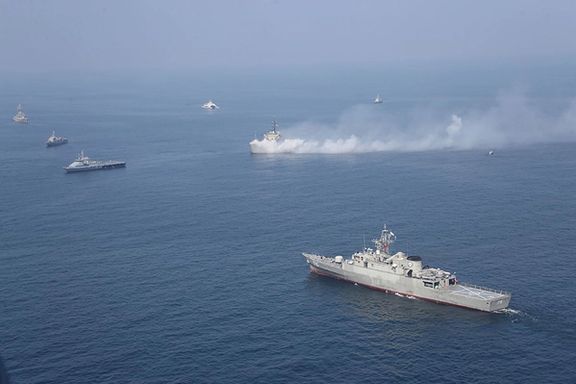
Brazil postponed the request of two Iranian warships to dock in Rio de Janeiro in January, under pressure from Washington, Reuters has said in an exclusive report.
The decision came at a time when Brazilian President Luiz Inacio Lula da Silva was planning his trip to Washington to meet President Joe Biden, sources told Reuters.
On January 13, Brazil granted permission for the IRIS Makran & IRIS Dena ships to dock in Rio's port during January 23-30, according to a post in the official government gazette.
That window has been scrapped, with the ships now authorized to dock between February 26 and March 3, the Brazil's foreign ministry said.
In the meantime, Iranian state media was presenting the scheduled docking of the two ships as a sign of Islamic Republic’s power and influence in America’s backyard.
A US official with direct knowledge of the situation said the prospect of Iranian warships in Rio ahead of Lula's meeting with Biden on Friday "was something unpleasant we wanted to avoid."
"There were a lot of behind-the-scenes conversations about this at many different levels," the official said, adding it was good news that the dates would no longer coincide.
A Brazilian military source confirmed that the federal government, via the foreign ministry, had shifted the dates and blocked the Iranian ships from docking.
"It's true that there was a veto (from the government)," said the source, speaking on condition of anonymity. "The Iranian ships could not come during this period."
Diplomacy with Iran was one of the policies of Lula's previous presidential mandate, and he has declared neutrality in the Ukraine conflict.

Reactions are still pouring in to the proposal by Iran’s former premier-cum-opposition figure Mir-Hossein Mousavi for constitutional change through a referendum that could end in regime change.
In comments on Thursday, outspoken Sunni religious leader Mowlavi Abdolhamid praised Mousavi’s proposal and described it as the result of his understanding about the realities of society, demanding that other politicians see these realities.
“With his recent statement, Mousavi showed that he understood the realities of society. It's time for other politicians and ulema (religious scholars) to think about saving the country and see the facts,” he said. In November, the top Sunni cleric himself had called for an internationally monitored plebiscite, saying that by killing and repression the government cannot push back a nation.
Abdolhamid also criticized over a decade of house arrest imposed on Mousavi, his wife Zahra Rahnavard, and Former Parliament Speaker Mehdi Karroubi, calling it an example of the Islamic Republic’s injustice.
Mousavi and Karroubi both were presidential candidates in 2009, when a highly disputed vote count gave the presidency to Mahmoud Ahmadinejad triggering large popular protests that became known as the Green Movement. Eventually, both Mousavi and Karroubi were put under house arrest in 2011.

Referring to the regime’s violent crackdown on protesters, Mousavi said in his statement that such events have “demonstrated major truths for the nation.” The rulers of the Islamic Republic are not willing “to take the smallest step to meet the demands of the people.” Iran needs a“fundamental change” based on “Woman, Life, Freedom” and constitutional change, he said earlier in the month.
The leader of the Green Movement is known as a staunch reformist, or someone who believes the Islamic Republic can be reformed to become a more democratic and tolerant polity. But Mousavi’s statement rejected reform as a viable alternative, urging fundamental change, a new constitution and a constitutional assembly. Although he did not openly call for regime change, but his demands, if implemented, could lead to a new and democratic political system.
Mousavi in his statement implicitly repeated what exiled Prince Reza Pahlavi has been saying for years, and other opposition activists have echoed in the past five months – transition from the Islamic Republic.
Abdolhamid who has become an outspoken critic of the regime, has stopped short of calling for a new system of government, but endorsing Mousavi’s statement clearly aligns him with political forces that believe the people should be given a chance to decide what kind of government they want.
The 2009 Green Movement leader’s rejection of the reform option in the Islamic Republic has been met with admiration and antipathy alike. Some reformists, including seven prominent political prisoners and over a dozen figures of the ‘religious intellectual movement’, and its mentor Abdolkarim Soroush, have welcomed his proposal, others have strongly rejected it. The political prisoners, including leading reformist politician, Mostafa Tajzadeh and the daughter of Iran former president Akbar Hashemi Rafsanjani, Faezeh Hashemi, who are behind bars, announced that "they will do their best to advance this proposal and a peaceful and non-violent transition to a completely democratic and developed Iranian structure."

Mousavi’s volte-face can be seen as a milestone in the reformist camp as another bigwig of the movement former president Mohammad Khatami also believes reformism in Iran has reached a deadlock. Mohammad Javad Haqshenas, a prominent reformist figure, said earlier this week that Khatami's statement, which was issued on the 44th anniversary of the 1979 Islamic revolution, should be construed as a premonition for the regime that the Islamic Republic cannot be reformed.
February 11, 2023, marks the forty-fourth anniversary of the establishment of the Islamic Republic of Iran, and many people on social media believe that it is the last time the regime is celebrating the event.
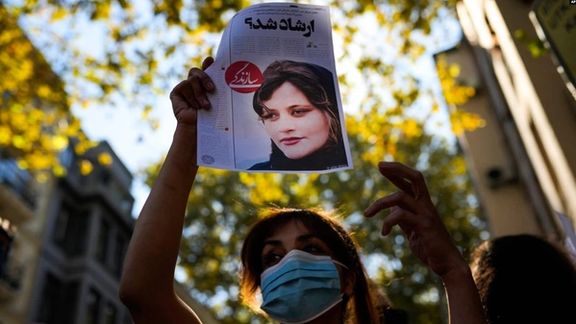
Media affiliated with hardliners in Iran have been outraged by Iran International's report on Wednesday about security agents raping two detained young women.
Tasnim news agency, affiliated to the Revolutionary Guard, quoted a report by the conservative Farhikhtegan daily, which addressed the assault, denying the rape charge.
A letter leaked by a hacktivist group to Iran International on Wednesday revealed details about the rape of two female protesters, aged 18 and 23, by IRGC agents.
Farhikhtegan rejected Iran International's report saying the document was "manipulated and fake".
The paper claimed on its Telegram channel Thursday that “if the military forces commit a crime, they will be dealt with in the judicial organization of the armed forces. Other departments of the judicial system are neither competent nor involved to enter the case.”
This comes as the text of the document shows the case went to the judiciary because the victims complained and it states that the case was sent to “relevant bodies”, but the prosecutor's office has requested that the case be closed.
The daily, however, rejected numerous reports about rape in prisons, including the rape of Armita Abbasi, alleging that no rape had taken place in the prisons of the Islamic Republic during the protests.
Alireza Sadeqi and Alireza Hosseini are two IRGC agents referred to in the letter that admitted to raping the two women, with Sadeqi acknowledging that they detained them near a gas station while on a mission in in western Tehran.
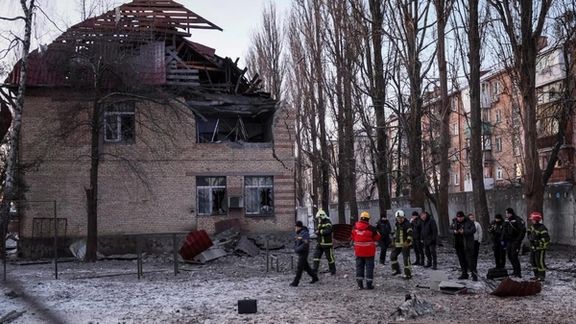
Dozens of US lawmakers have written to President Joe Biden to express concerns about reports that Iranian-made drones recovered in Ukraine contain parts manufactured in the United States.
In addition to President Biden, the letter was also addressed to Secretary of State Antony Blinken, Treasury Secretary Janet Yellen, and Secretary of Commerce Gina Raimondo and was signed by about 60 members of the US House of Representatives.
The letter is in line with earlier efforts by Western countries seeking to restrict the Islamic Republic’s access to parts used in building drones that Russia uses to attack Ukraine.
Voicing their deep concern, the lawmakers urge the Biden administration “to develop a coordinated, whole-of-government approach to interrupt Iran’s supply chains, shut down shell companies used by adversaries to evade sanctions, and pressure allies to crack down on unscrupulous distributors in Europe and Asia.”
They also called for “a timely briefing on any progress that has been made and plans going forward” about Washington’s efforts to curb the supply of drone parts.
“Iran has provided hundreds of drones to Russia since August 2022. The Shahed-136 and Shahed-131, one-way attack unmanned aerial vehicles also known as “suicide drones,” have terrorized Ukrainian civilians since their introduction into the conflict. Iran has also delivered to Russia the Mohajer-6, a surveillance drone capable of conducting precision air-to-ground strikes,” the letter read.
Conflict Armament Research investigations revealed that processors built by Dallas-based technology company Texas Instruments as well as engines made by Austrian firm owned by Canada’s Bombardier Recreational Products have been used in the drones.
Many parts are considered dual-use components and relatively easy to buy, without any approval needed.
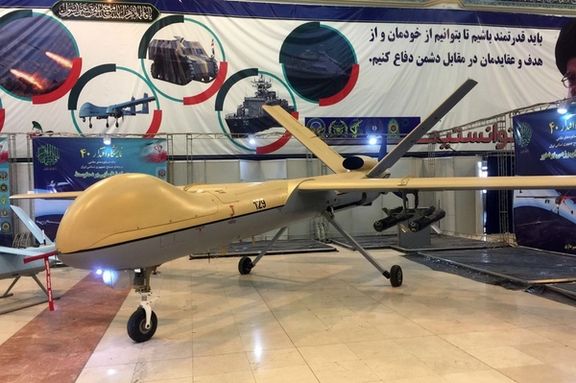
The representatives referred to the report by Conflict Armament Research that studied more than 500 components from Iranian-made drones and unexploded precision-guided munitions that were recovered in Ukraine, determining that “82 percent of their parts were manufactured by companies based in the United States.” Ukrainian intelligence services have estimated that 75 percent of the components of Iranian-made drones deployed in the conflict are US-made.
The signatories also mentioned the punitive measures taken by the Office of Foreign Assets Control on firms involved in the production and delivery of Iranian drones to Russia, describing the sanctions as “a small but promising first step in what must become a concentrated, sustained effort.”
“Just as the United States and its international allies rallied to implement a comprehensive sanctions regime to combat Iran’s ballistic missile program, it must do the same to degrade the regime’s precision-strike capabilities,” they urged.
They said Tehran’s fleet of drones have far-reaching implications beyond the war against Ukraine as such weapons “provide Iran and its proxies with yet another tool to project power in the region, threatening our troops, key allies, and freedom of navigation.”
Stressing the necessity of immediate action, they said the US should move not only to disrupt Iran’s burgeoning relationship with Russia, but also to blunt Iran’s ability to undermine international law, project power across the Middle East, and threaten US servicemembers.
Since December, Biden has launched a task force – comprised of different departments including Justice, Treasury, Defense, Commerce and State are involved in the task force -- to see how US and western components are ending up in Iranian drones.
In January, the Quebec-based company Bombardier Recreational Products (BRP), best known for water-skis and snowmobiles, passed to the Canadian government its internal report on how its engines ended up in Iranian-made drones used by Russia in Ukraine. The BRP said it has established through a “thorough investigation” that an engine found in a downed Mohajer-6 drone had not been sold directly to either Iran or Russia. Bombardier ended supplies of the engines to Iran in 2019, although the Mahtabal company in Tehran still markets itself as official representative for Rotax engines.
Earlier in the day, the adviser to Iran’s minister of intelligence claimed that 90 countries are "customers" of Iranian drones, and China is in the "queue" to receive 15,000 of these drones. The Wall Street Journal recently reported that an Iranian delegation has travelled to Russia to build a factory capable of producing six thousand UAVs designed by Tehran to be used in the war against Ukraine.